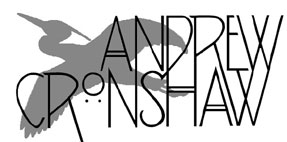
- Andrew Cronshaw website -
- Andrew Cronshaw MySpace -
- Cloud Valley Music website -
- Andrew Cronshaw website -
- Andrew Cronshaw MySpace -
- Back to Reviews Introduction page -
Written in Folk Roots issue 162, 1996
THE PHILIP KOUTEV NATIONAL FOLK ENSEMBLE
Bulgarian A Capella
JVC-5389-2 (1996)
VULCHEVA-JENKINS INCIDENT
Cross The Danube
Osmosys OSMO CD009 (1996)
Philip Koutev started the first Bulgarian national folk ensemble in 1951,
inspired by the Russian Pyatnitski ensemble. As part of a plan to generate a
sort of Bulgarian classical music, and drawing organisational (and hierarchical)
ideas from the western classical music infrastructure, a network of 14 regional
ensembles evolved; each had a choir, an orchestra of traditional and remodelled
folk instruments, and a dance team. (The womenís choir of the Bulgarian national
radio ensemble is the one whose recordings when released abroad came to be
titled, as a result of the involvement of French recordist Marcel Cellier, Le
MystŤre Des Voix Bulgares). A number of music schools were set up, mainly in
Thrace, providing a steady source of folk musicians who could read music and so
could play and sing the new obrabotki, written arrangements of traditional
tunes.
While several arrangers were held in low esteem
among the musicians, Koutev, and also fellow-arranger Kosta Kolev, had good
reputations for listening to their ideas and allowing them to play ďfrom the
heartĒ. However they were all trapped within a system which allowed players to
offer tunes (from their birth region only) for arrangement, and be rewarded by
taking the solo part, but rarely allowed them to do the actual arrangement; the
bureaucracy of the Radio Commission ensured that that lucrative employment was
in effect reserved for members of the Society of Composers. (A study of these
ensembles, and the views and frustrations of their musicians, by Donna Buchanan,
published in the Autumn 1995 Journal of the Society for Ethnomusicology
is the source of most of this information, and makes enlightening further
reading.)
Whatever the rights and wrongs, or politics,
unique and majestic music, and stunning musicianship, emerged from the narodni
(folk music) ensembles. This 1988 recording of the Koutev Ensembleís female
choir without its orchestra, fourteen songs including ten of Koutevís
arrangements, sounds remarkably similar to recordings made when he was still
director (he died in 1984); indeed the soloist on the first track is Elena
Iranova, an Ensemble member since 1951.
Most of those, originally released on state label
Balkanton, arenít reissued on CD (yet?), so this, excellently recorded in Tokyo
Post Office Life Assurance and Annuities Hall (clearly acoustically a long way
from Post Office Counters PLC), is a recommended access point to music which
despite considerable acclaim (some of it for much less exciting works) still
hasnít fully achieved its deserved worldwide high status.
In communist times the state ensembles, if they
went abroad, toured en bloc, but gradually, and more rapidly as Bulgaria has
changed politically and economically, Bulgarian singers and musicians have been
turning up in musical projects across the world. For twenty years Kalinka
Vulcheva was a leading soloist in the Bulgarian Radio ensemble, indeed she
features, singing Petranka Has Begun Swinging, on the 1974 Balkanton LP
which is still the most startling recording of this music Iíve heard and which
(together with the Nonesuch albums by Ethel Raimís US ensemble The
Pennywhistlers) opened my window onto it.
She was singing with her band Loznitsa when the British band Whippersnapper
encountered them at a European festival in 1988; subsequently the groups toured
together, and four years later Whippersnapperís mandocello player Martin Jenkins
and Kalinka married.
Jenkinsí music has echoes of the English
guitarist-singer styles which evolved in the late 60s and early 70s; indeed his
voice shares some characteristics with that of Bert Jansch. On Cross The
Danube the very different traditions of Vulcheva and Jenkins meet and to
some extent intertwine. Vulcheva brings her extraordinary, wonderful vocals,
sometimes hair-raisingly multi-tracked, to songs by Jenkins and also to British
traditional material - they lead The Blacksmith over the edge into being
the Balkan song it always seemed to have in it, with the leader of the Dobroudja
Ensemble, Jhivko Jhelev, on kaval; Bert Lloyd would have smiled.
In return Jenkins applies his winding, intricate
mandola picking style (often, perhaps rather datedly, phased/chorused) plus some
fiddle and mandolin, to Bulgarian songs, with the third member of the Incident,
Ted Kay, on percussion, and session musicians including guitarist Ray Jenkins,
Martinís son.
The sleeve isnít likely to attract the attention
of a rack-browser, but within lies a remarkable project, with few parallels
except perhaps in the work of Mara and in the feel of some of the original
Pentangleís music - come to think of it, I can imagine Danny Thompson in here
too.
© 1996
Andrew Cronshaw
You're welcome to quote from reviews on this site, but please credit the writer
and fRoots.
Links:
fRoots - The feature and
review-packed UK-based monthly world roots music magazine in which these reviews
were published, and by whose permission they're reproduced here.
It's not practical to give, and keep up to date,
current contact details and sales sources for all the artists and labels in
these reviews, but try Googling for them, and where possible buy direct from the
artists.
CDRoots.com in the USA, run by
Cliff Furnald, is a reliable and independent online retail source, with reviews,
of many of the CDs in these reviews; it's connected to his excellent online magazine
Rootsworld.com
For more reviews click on the regions below
NORDIC
BALTIC
IBERIA (& islands)
CENTRAL & EASTERN EUROPE, & CAUCASUS
OTHER EUROPEAN AMERICAS OTHER, AND WORLD IN GENERAL
- Back to Reviews Introduction page -